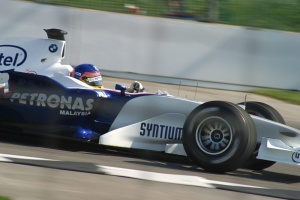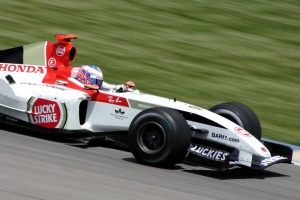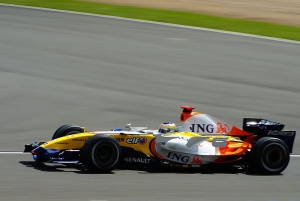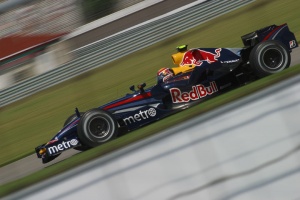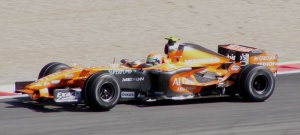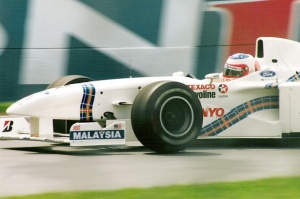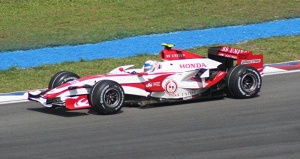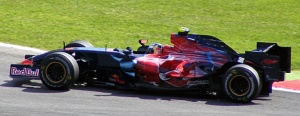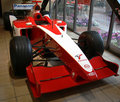Difference between revisions of "Formula One sponsorship liveries"
m |
m |
||
| Line 44: | Line 44: | ||
Image:Patrese, Alfa Romeo 02.08.1985.jpg|<font color=black>The 1985 [[Alfa Romeo 185T|<font color=black>Alfa Romeo 185T]] in its Benetton livery.</font> | Image:Patrese, Alfa Romeo 02.08.1985.jpg|<font color=black>The 1985 [[Alfa Romeo 185T|<font color=black>Alfa Romeo 185T]] in its Benetton livery.</font> | ||
</gallery> | </gallery> | ||
| + | |||
==Benetton== | ==Benetton== | ||
| Line 93: | Line 94: | ||
|"Mild Seven" was replaced with "Benetton" | |"Mild Seven" was replaced with "Benetton" | ||
|} | |} | ||
| + | |||
==BMW Sauber== | ==BMW Sauber== | ||
[[Image:Jacques Villeneuve - Sauber BMW.jpg|thumb|left|Jacques Villeneuve driving the BMW Sauber F1.06 at the 2006 USGP.]] | [[Image:Jacques Villeneuve - Sauber BMW.jpg|thumb|left|Jacques Villeneuve driving the BMW Sauber F1.06 at the 2006 USGP.]] | ||
| − | After having been an engine supplier in the 1980s and again since 2000, BMW entered Formula One with a works team of its own in 2006 Formula One season. Although the cars have many sponsorship logos on them, the main pattern is based on the traditional BMW Motorsport team colors of white with light blue, dark blue and a little red (in an almost purple shade). White is also the original [[List of international auto racing colors|<font color=black>national racing color]] of Germany, while white and blue are the colors of Bavaria and of BMW itself.</font> | + | After having been an engine supplier in the 1980s and again since 2000, BMW entered Formula One with a works team of its own in 2006 Formula One season. Although the cars have many sponsorship logos on them, the main pattern is based on the traditional BMW Motorsport team colors of white with light blue, dark blue and a little red (in an almost purple shade). White is also the original [[List of international auto racing colors|<font color=black>national racing color</font>]] of Germany, while white and blue are the colors of Bavaria and of BMW itself.</font> |
{| border=1 cellspacing=3 cellpadding=4 style="float:center; margin:0 0 .5em 1em; width:500px; background:#505050; border-collapse:collapse; border:1px solid #999; font-size:83%; line-height:1.5; " summary="Infobox Automobile" | {| border=1 cellspacing=3 cellpadding=4 style="float:center; margin:0 0 .5em 1em; width:500px; background:#505050; border-collapse:collapse; border:1px solid #999; font-size:83%; line-height:1.5; " summary="Infobox Automobile" | ||
Revision as of 10:42, 6 March 2009
Formula One sponsorship liveries have been used since the late 1960s, replacing the previously used national colors. With sponsors becoming more important with the rising costs in Formula One, many teams wanted to be able to display the logos of their sponsors as clearly as possible.
The liveries are usually changed for every season in the sport, marking the marketing ideas of the sponsors. Many teams keep some consistency over the years however, like the red color of Ferrari, which has its origin in a shade of red known as rosso corsa being the national racing color of Italy. At certain events where tobacco sponsorships are prohibited, teams may use an alternate non-tobacco livery. At historical events, cars are allowed to use the livery which was used when the car was actively competing.
Alfa Romeo
Alfa Romeo was a Formula One constructor between 1950-1951 and again between 1979-1985.
| Year | Main color(s) | Additional color(s) | Main sponsor(s) | Additional major sponsor(s) |
|---|---|---|---|---|
| 1950-1951 | Red | none | none | none |
| 1980-1983 | Red, White | none | Marlboro | none |
| 1984-1985 | Green, Red | none | Benetton Group | none |
A 1951 Alfa Romeo 159 in the racing colors of Italy.
The 1985 Alfa Romeo 185T in its Benetton livery.
Benetton
Benetton Formula Ltd., commonly referred to simply as Benetton, was a Formula One constructor that participated from 1986 to 2001. The team was owned by the Benetton family who run a worldwide chain of clothing stores of the same name. In 2000 the team was purchased by Renault, but competed as Benetton for the 2001 season. In 2002 the team became Renault F1. From the 1992 to 1993, Camel sponsored the Benetton team, but, from the 1994 to 2001 the main sponsor was Mild Seven.
| Year | Main color(s) | Additional color(s) | Main sponsor(s) | Additional major sponsor(s) | Non-tobacco/Alcohol livery changes |
|---|---|---|---|---|---|
| 1986-1991 | Red, Green | Blue, Yellow | Benetton Group | None | None |
| 1992-1993 | Yellow | Green | Camel | Mobil 1, Sanyo, Technogym (1993), Elf (1993), Denin (1993) | "Camel" letters were covered with blue gaps, while the logo was replaced with a dot |
| 1994 | Blue | Green | Mild Seven | Ford, Mobil 1, Elf, Sanyo | "Mild Seven" was replaced with "Benetton" |
| 1995 | Blue | Dark Blue | Mild Seven | Bitburger, Mobil 1, Elf, Renault | "Mild Seven" was replaced with "Benetton" and "Bitburger" was replaced with "Drive Alcoholfrei" |
| 1996-2001 | Blue | White | Mild Seven | FedEx (1996-1999), Agip (1996-2000), Prince Sports (1996-1997), Kingfisher Airlines (1996), Mobil 1 (1996-1997), Akai (1997-1998), Supertec (1999-2000), Playlife (1999) , D2 Mannesmann (1999-2000), Bridgestone (1999-2000), Marconi (2000-2001), Elf (2001), Renault (2001) Korean Air (1997-2001) | "Mild Seven" was replaced with "Benetton" |
BMW Sauber
After having been an engine supplier in the 1980s and again since 2000, BMW entered Formula One with a works team of its own in 2006 Formula One season. Although the cars have many sponsorship logos on them, the main pattern is based on the traditional BMW Motorsport team colors of white with light blue, dark blue and a little red (in an almost purple shade). White is also the original national racing color of Germany, while white and blue are the colors of Bavaria and of BMW itself.
| Year | Main color(s) | Additional color(s) | Main sponsor(s) | Additional major sponsor(s) |
|---|---|---|---|---|
| 2006– | White | Blue, red | Petronas, Intel, T-Systems | Syntium |
British American Racing
British American Racing competed in Formula One from 1999 to 2005. The name of the team was taken from British American Tobacco which provided the main sponsorship and was livery sponsor through two of its main cigarette brands.
| Year | Main color(s) | Additional color(s) | Livery sponsor(s) | Additional major sponsor(s) | Non-tobacco livery changes |
|---|---|---|---|---|---|
| 1999 | Blue, Red | None | 555, Lucky Strike (both British American Tobacco) | None | 555 logo changed, Lucky Strike logo blocked out |
| 2000–2005 | White | Red, Black | Lucky Strike (British American Tobacco) | Honda, Intercond, Tiscali, 555 | Lucky Strike logo blocked out, "Luckies" changed to "Lookies"(2000), "Lucky Strike" was replaced with "Look Alike"(2001), Lucky Strike was replaced with "Don't Look", "Look Left" and "Look Right" while the logo was replaced with a barcode(2004),"Lucky Strike" was replaced with "Speed Freak"(2005) |
Ferrari
In keeping with their Italian roots, Ferrari has always kept a red color in the tradition of rosso corsa, the national racing color of Italy, except for two races in 1964 when Enzo Ferrari let his cars enter by NART in American blue and white colors to protest against Italian racing authorities. Over the years, rosso corsa has been combined with white parts and with various sponsorship schemes, but Ferrari has never fully let their cars be dominated by the sponsorship livery like many other teams have.
| Year | Main color(s) | Additional color(s) | Main sponsor(s) | Additional major sponsor(s) | Non-tobacco livery changes |
|---|---|---|---|---|---|
| 1968– | Red | White or black | Marlboro, Vodafone (2002–2006) | Shell, Asprey (1996-1998), Pioneer (1993-1998), Agip (1993-1996), FIAT, Etihad (2008-), Alice (2006-), Banco Santander(2010-), Martini (2006-) | Marlboro logo removed completely or replaced with white space (2000-2004), Marlboro logo changed to "bar code" (1994-1999/2005-present) |
With the exception of the 1964 United States and Mexican Grands Prix, Ferrari has always raced in the Italian national racing color of rosso corsa. This is Lorenzo Bandini driving the Ferrari 312 at the 1966 German Grand Prix.
Niki Lauda driving the Ferrari 312T at the 1976 German Grand Prix. By this time, the Ferrari livery included the logos of team suppliers such as Goodyear and Agip.
[[Alain Prost]] driving the Ferrari F1 642 at the [[1991 Monaco Grand Prix]], with a largely unchanged livery from 1976.
By 1994, the team had received primary sponsorship from Marlboro. This is Jean Alesi driving the Ferrari 412T2 at that year's Canadian Grand Prix.
Michael Schumacher driving the Ferrari 248 F1 at the 2006 United States Grand Prix, showing sponsorship from Vodafone, Shell, and the Marlboro "barcode".
The team's current livery is displayed by Kimi Räikkönen, who is pictured driving the Ferrari F2008 at the |2008 Spanish Grand Prix.
Force India
Force India is the fourth different edition of the former Jordan in as many years.
| Year | Main color(s) | Additional color(s) | Livery sponsor(s) | Additional major sponsor(s) |
|---|---|---|---|---|
| 2008 | Burgundy | White | Kingfisher Airlines | ICICI |
| 2009 | White | Green, Saffron | Kingfisher Airlines | ICICI, Medion, Reliance Industries, Royal Challenge, Whyte & Mackay |
Honda
Honda first raced in Formula One from 1964 to 1968. The cars were entered in an all-white livery with a red circle, duplicating the Japanese flag. The company won several races but left F1 at the end of the 1968 season, before returning as an engine supplier in the 1980s. After a decade away from the sport, Honda returned again as an engine supplier in 2001, before buying the British American Racing team and entering F1 as a constructor in 2006.
For the 2006 season, Honda continued with the BAT sponsorship with the Lucky Strike logo, but BAT pulled out for 2007. From 2007, the only logos on the car are the Honda badge, the Bridgestone logo, and the logo of Honda's environmental awareness program, Earth Dreams. For 2007, the livery itself was a picture of the Earth on a black background. For 2008, however, there are only pieces of the image of Earth on a mainly white background, as opposed to the whole of the Earth being on Honda's car.
| Year | Main color(s) | Additional color(s) | Livery sponsor(s) | Additional major sponsor(s) | Non-tobacco livery changes |
|---|---|---|---|---|---|
| 2006 | White | Red | Lucky Strike (British American Tobacco) | Intercond | Lucky Strike logo changed to "Racing Revolution", "Look Left", "Look Right" and during the 2006 Brazilian Grand Prix "Last Blast" was on the rear wing. |
| 2007 | Earth | Black | myearthdream.com (Honda) | None | None |
| 2008 | White | Earth | Earth Dreams (Honda) | None | None |
A 1965 Honda RA272 in the racing colors of Japan.
Upon its return to F1 in 2006, Honda continued with virtually be same livery as had been used by the British American Racing team in preceding years. This is Rubens Barrichello at driving the Honda RA106 at the 2006 Canadian Grand Prix.
The 2007 Honda RA107 in its distinctive Earth livery, being driven by Rubens Barrichello at Malaysia.
The earth-themed livery was revised for 2008, as shown by Jenson Button at the 2008 Malaysian Grand Prix.
Jaguar
Jaguar used green to reflect its British nationality, just like British teams in the first decades of Formula One all used British racing green.
| Year | Main color(s) | Additional color(s) | Main sponsor(s) | Additional major sponsor(s) | Non-Alcohol Livery Changes |
|---|---|---|---|---|---|
| 2000–2004 | Green | White | HSBC | Beck's | Beck's was replaced by "BEST'S" |
Jordan
Jordan Grand Prix competed in Formula One from 1991-2005. During 1997-2005, they were known for their distinctive bright yellow livery.
| Year | Main color(s) | Additional color(s) | Livery sponsor(s) | Additional major sponsor(s) | Non-tobacco livery changes |
|---|---|---|---|---|---|
| 1991 | Green | 7-Up | FujiFilm | ||
| 1992-1993 | Blue | White, Red | Sasol | Barclay | None |
| 1994 | Blue | Silver, White | Sasol | Arisco | None |
| 1995 | Aqua Green | Red, White, Blue | Peugeot | Beta | None |
| 1996 | Gold | None | Benson & Hedges | None | Benson & Hedges logo changed to "Bitten Hisses" |
| 1997-2005 | Yellow | Black | Benson & Hedges (up to 2003), none (2004), Sobranie (2005) | Repsol (1998), Deutsche Post (2002), Galp Energia (2005) | Benson & Hedges logo changed to "Bitten Hisses" or driver surnames (1997), "Buzzing Hornets" (1998 to 2000), "Bitten Heroes" (2001),and "Be On Edge" (2002 to 2004), Sobranie logo changed to "Be On Edge" (2005) |
Michael Schumacher driving the Jordan 191 at the 1991 Belgian Grand Prix, with primary sponsorship from 7 Up.
Giancarlo Fisichella driving the Jordan EJ12 at the 2002 United States Grand Prix.
Ralph Firman's Jordan EJ13 shows the non-tobacco "Be On Edge" livery at the 2003 French Grand Prix.
Giorgio Pantano driving the Jordan EJ14 at the 2004 French Grand Prix. You can see the lack of sponsorship on the sidepods, which instead has a Jordan logo.
Lotus
Lotus was the first team to abandon the national color system when the possibility to do so was created in 1968. Lotus also had one of the longest sponsorship cooperations in Formula One history, making the black and gold of its 1972–1986 John Player Special seasons one of the most well known liveries to this day.
| Year | Main color(s) | Additional color(s) | Livery sponsor(s) | Additional major sponsor(s) |
|---|---|---|---|---|
| 1968–1971 | Red and white | Gold | Gold Leaf (Imperial Tobacco) | |
| 1972–1978 | Black | Gold | John Player Special (Imperial Tobacco) | Olympus (1978) |
| 1979 | British racing green | Red, white and blue | Martini | Tissot |
| 1980 | Dark blue | Red and white | Essex | Tissot |
| 1981–1986 | Black | Gold | John Player Special (Imperial Tobacco) | Essex, Tissot, Courage (1981); Olympus (1985); DeLonghi (1986) |
| 1987–1990 | Yellow | Blue | Camel | DeLonghi (1987); Epson (1989) |
| 1991–1992 | Green | White (1991); Yellow (1992) | BP | Hitachi, Tamiya |
| 1993–1994 | Green, white and red | Black and yellow | Castrol | Hitachi, Tamiya |
Prior to commercial sponsorship, Lotus cars ran in a livery of British racing green. This is a Lotus 33 being demonstrated at the 2006 Goodwood Festival of Speed.
Lotus pioneered sponsorship in F1 through its deal with Imperial Tobacco, which resulted in the cars racing with a "Gold Leaf" livery. This is Graham Hill driving a Lotus 49B at the 1969 German Grand Prix.
A Lotus 77 in the famous John Player Special colors.
Lotus briefly parted ways with JPS in the early 1980s, as is evidenced by this Lotus 88 originally from 1981.
However, the partnership was soon renewed, although the JPS logo had to be replaced with a non-tobacco livery on Ayrton Senna's Lotus 98T at the 1986 British Grand Prix.
Lotus were sponsored by Camel in the period 1987-1990.
For its final year in F1, Lotus had to rely on a multitude of small sponsors. This is Johnny Herbert driving the Lotus 109 at the 1994 British Grand Prix.
McLaren
McLaren had the longest sponsorship deal in F1 history with Marlboro, whose red-and-white pattern appeared on the team's cars for 23 straight years.
| Year | Main color(s) | Additional color(s) | Livery sponsor(s) | Additional major sponsor(s) | Non-tobacco livery changes |
|---|---|---|---|---|---|
| 1972–1974 | White | Black and red | Yardley of London | None | |
| 1974–1996 | Red and white | Marlboro (Altria Group) | TAG Group | Marlboro logo was replaced with barcode (1988-1992) or with McLaren (1992-1997) | |
| 1997–2005 | Silver | Black | West (Imperial Tobacco) | Mercedes-Benz | "West" replaced with West logo (1997-1999) or with drivers' first names (1999-2005) |
| 2006 | Silver | Red | Emirates Airline | Mercedes-Benz, Johnnie Walker (Diageo plc) | None |
| 2007-2008 | Silver | Red | Vodafone | Mercedes-Benz, Johnnie Walker (Diageo plc), Aigo, Banco Santander | None |
The original McLaren livery was orange. Team founder Bruce McLaren is pictured driving the McLaren M7C at the 1969 German Grand Prix.
The team's first sponsorship deal was with Yardley, who branded McLarens such as this M19C (shown being demonstrated at the 2004 Canadian Grand Prix weekend.
Marlboro colors first appeared on a McLaren in the 1974 season. This is Emerson Fittipaldi driving the McLaren M23 at the 1974 British Grand Prix.
The McLaren-Marlboro partnership lasted from 1974 until the end of 1996, and produced several championships, including Ayrton Senna in 1991.
From 1997 to July 2005, McLaren switched to West. This is Mika Häkkinen driving the McLaren MP4-15 at the 2000 United States Grand Prix.
At races where tobacco advertising was not allowed, the "West" logos were substituted for the driver's name in identical font. Thus Pedro de la Rosa's McLaren MP4-20 was branded "Pedro" at the 2005 British Grand Prix.
McLaren's main sponsor in 2006 was Johnnie Walker, as evidenced by Juan Pablo Montoya's McLaren MP4-21 at the 2006 United States Grand Prix. From this year onwards, the team has also used a highly-reflective version of its silver livery.
From 2007 onwards, McLaren's title sponsor has been Vodafone. This is Fernando Alonso at the 2007 British Grand Prix.
Midland
Midland F1 competed for only one year, 2006. They took over Jordan in 2005, but Midland sold it in late 2006 to Spyker. They were the first, and so far only, F1 team to compete with a Russian license. (After Spyker's takeover in mid-2006, the team changed its livery to orange and name to Spyker MF1 Racing. In 2007, the team competed as Spyker F1.)
| Year | Main color | Additional colors | Livery sponsor | Additional major sponsors |
|---|---|---|---|---|
| 2006 | Grey | White, Red | Midland | Rhino's, Mingya |
| 2006 (after Spyker takeover) | Orange | Silver | Spyker, Rhino's | Mingya |
Tiago Monteiro driving the Midland M16 at Silverstone.
Minardi
| Year | Main color(s) | Additional color(s) | Main sponsor(s) | Additional major sponsor(s) |
|---|---|---|---|---|
| 2002 | Black | None | Go KL (Kuala Lumpur), European Aviation | None |
| 2003-2004 | Black | White | Trust (2003), Wilux (2004) | OzJet (2004) |
| 2005 | Black | White | OzJet | co2neutraal.tv, Lost Boys |
Minardi raced variations on this original black-and-gold livery in the period 1985-1992. This is a Minardi M185 being raced at Brands Hatch in 2005.
The absorption of the BMS Scuderia Italia team into Minardi for 1994 resulted in sponsorship from many Italian comapanies. This is Pierluigi Martini driving the Minardi M194 at the 1994 British Grand Prix.
Mark Webber's Minardi PS02 features "Go KL" branding at the 2002 French Grand Prix due to the identity of his Malaysian team-mate, Alex Yoong.
Christijan Albers driving the Minardi PS05 at the 2005 Canadian Grand Prix. OzJet is an aviation company owned by the CEO of Minardi from 2001 to 2005, Paul Stoddart.
Prost
Prost competed in Formula One for five seasons, all the time with basically the same livery even if the sponsors changed.
| Year | Main color(s) | Additional color(s) | Main sponsor(s) | Additional major sponsor(s) | Non-tobacco livery changes |
|---|---|---|---|---|---|
| 1997-2000 | Blue | Black | Gauloises, Playstation 2, Yahoo (2000) | Société Bic Alcaltel | Gauloises changed to "bar code" |
| 2001 | Blue | Black | Prost Grand Prix, Acer | Dark Dog | N/a |
During its existence, the Prost team maintained a traditional French blue livery. This is Olivier Panis driving the Prost AP01 at the 1998 Canadian Grand Prix.
Red Bull
Red Bull Racing are of course sponsored by Red Bull and various others.
| Year | Main color(s) | Additional color(s) | Livery sponsor(s) | Additional major sponsor(s) |
|---|---|---|---|---|
| 2005- | Blue | Red, Yellow, Silver (2005-2006) | Red Bull | Red Bull Hangar-7 (2005-2006), Metro International (2007), Leica (2008) |
Renault
Renault entered Formula One in 1977 and withdrew as a team after the 1985 season. Renault returned to Formula One in 2002 by buying the Benetton team. Renault had a contract with Mild Seven from 2002 to 2006, and now has a title contract with ING Group.
| Year | Main color(s) | Additional color(s) | Livery sponsor(s) | Additional major sponsor(s) | Non-tobacco livery changes |
|---|---|---|---|---|---|
| 1977-1985 | Yellow | Black, White | Elf Aquitaine | None | |
| 2002-2006 | Blue | Yellow | Mild Seven | Chronotech, Elf Aquitaine, Telefónica (2004-2006) | "Mild Seven" was replaced with "Blue World" (2002-2004) replaced with drivers full name (2004), changed to "Team Spirit" or concept art (2005 to 2006) |
| 2007- | Yellow | White, Orange | ING Group | Chronotech Mutua Madrileña (2005-2006/2008) Pepe Jeans (2008) |
Renault's first F1 car, the RS01, raced with a predominantly yellow color scheme which was largely unchanged until the team's withdrawal from the sport at the end of 1985.
Renault's return in 2002 saw the yellow combined with the light blue of Mild Seven. This is Jarno Trulli driving the Renault R24 at the 2004 United States Grand Prix.
Renault's employment of Fernando Alonso (shown driving the Renault R25 at the 2005 British Grand Prix) also saw Telefónica become a major sponsor of the team.
For 2007, Renault switched from Mild Seven to ING. This is Giancarlo Fisichella driving the Renault R27 at the 2007 British Grand Prix.
Spyker
Spyker took part in only one season of Formula One. The main color of the car did not directly reflect the sponsorships but was the orange racing color of the Netherlands.
| Year | Main color(s) | Additional color(s) | Main sponsor(s) | Additional major sponsor(s) |
|---|---|---|---|---|
| 2007 | Orange | Black | Etihad, Aldar Abu Dhabi | Superfund Group, Medion |
Stewart
Stewart lasted for only 3 years before being bought out by its engine supplier, Ford, and being rebranded as Jaguar, but managed to win a race in its final season, 1999. Stewart had a tartan decoration on its cars to signify its Scottish nationality.
| Year | Main color(s) | Additional color(s) | Main sponsor(s) | Additional major sponsor(s) |
|---|---|---|---|---|
| 1997 to 1999 | White | Blue, Yellow-Green | Ford, HSBC (1999) | Texaco, Lear |
Super Aguri
Super Aguri was set up before the 2006 season by Aguri Suzuki, with the help of Honda Racing, to provide a drive for former Honda driver Takuma Sato.For the 2006 season's SA05 and SA06, their car was based on the 2002 Arrows A23, after which, for the 2007 and 2008 seasons, they ran cars based on the previous year's Honda chassis.
| Year | Main color(s) | Additional color(s) | Main sponsor(s) | Additional major sponsor(s) |
|---|---|---|---|---|
| 2006 | White | Red | None | Samantha Kingz, Honda |
| 2007 | Red | White | S.S. United, then Four Leaf | Samantha Kingz, Honda |
| 2008 | Red | White, Black | Samantha Kingz | Honda |
Toro Rosso
Toro Rosso is the sister team of Red Bull Racing.
| Year | Main color(s) | Additional color(s) | Livery sponsor(s) | Additional major sponsor(s) |
|---|---|---|---|---|
| 2006- | Dark Blue | Red, Gold | Red Bull | Cosworth (2006), Magneti Marelli (2008-) |
Toyota
| Year | Main color(s) | Additional color(s) | Main sponsor(s) | Additional major sponsor(s) |
|---|---|---|---|---|
| 2001 | Red | White | Panasonic | Esso |
| 2002- | White | Red | Panasonic | Denso, Esso |
Tyrrell
Tyrrell Racing competed in Formula One from 1970-1998. Its traditional color was blue and white, or a combination as such, for most of the 1970s and 1980s. The cars were more white during the mid to late 1990s.
| Year | Main color(s) | Additional color(s) | Livery sponsor(s) | Additional major sponsor(s) |
|---|---|---|---|---|
| 1970-1976 | Blue | Elf | ||
| 1977-1978 | Blue and white | Elf | First National City Bank | |
| 1979-1980 | Blue and white | Red | Candy | |
| 1981 | Blue and white | |||
| 1982 | Blue and white | Red | Candy | |
| 1983 | Green | Benetton | ||
| 1984 | Blue / Black | DeLonghi (1 car) | ||
| 1985 | Blue | |||
| 1986-1987 | Black and white | Data General | ||
| 1988 | Black | |||
| 1989 | Blue and yellow | Camel | ||
| 1990 | Blue and white | Epson | Calbee, Nippon Shinpan | |
| 1991-1992 | Black and white | Braun | Calbee, Nippon Shinpan | |
| 1992-1993 | Blue and white | |||
| 1994 | White | |||
| 1995 | Blue and white | Nokia | ||
| 1996 | White | |||
| 1997-1998 | Black and white | PIAA |
The Tyrrell P34 six-wheeler, driven by Jody Scheckter at the 1976 German Grand Prix, in blue Elf livery.
Stefan Bellof driving the Tyrrell 012 at the 1984 Dallas Grand Prix with a DeLonghi livery. When Bellof and Martin Brundle were Tyrrell team-mates in 1984, their cars had different liveries.
Tyrrell had PIAA sponsorship in 1997 and 1998. This is Toranosuke Takagi driving the Tyrrell 026 at the 1998 Spanish Grand Prix.
Williams
Williams, as a major constructor, is rare in modern F1 in that they have no manufacturer backing. Over the years, their supply of engines and other major components has often changed, meaning that their livery is renewed more often than most of their rivals. Sponsors of Williams can often have the livery dramatically changed (for the right price, of course), which has helped to keep Williams competitively financed since 1978, when Williams first entered as a constructor.
| Year | Main color(s) | Additional color(s) | Livery sponsor(s) | Additional major sponsor(s) | Non-tobacco livery changes |
|---|---|---|---|---|---|
| 1978–1979 | White | Green and Black | Saudia, TAG | Denim | |
| 1980-1983 | White | Black | Saudia | Denim, Leyland (1981), TAG (1982-1983) | |
| 1984 | White | Yellow | Denim | ICI | |
| 1985-1989 | Yellow and White | Blue | Canon | ICI | |
| 1990-1992 | Blue and Yellow | White | Canon | Elf | |
| 1993 | Yellow and White | Blue | Canon, Camel (R. J. Reynolds Tobacco Company) | Elf | |
| 1994-1997 | Blue | White | Rothmans | Elf | "Rothmans" was replaced with "Williams", "Racing", "bar code", "?" (1997 French Grand Prix) or "R.?" |
| 1998 | Red | White | Winfield | "Winfield" was replaced with "Williams" and the Winfield logo was replaced with a black kangaroo or a black boomerang on an orange diamond | |
| 1999 | Red and White | Blue | Winfield | Castrol | |
| 2000-2005 | Blue and White | Compaq (2000-02), HP (2003-05) | Castrol (2000), Allianz (2001-05), BMW, FedEx, RBS (2005-) | ||
| 2006 | Deep Blue | White | Allianz | RBS, FedEx, Tata | |
| 2007 | Blue | White | AT&T, Lenovo | RBS, Allianz, Petrobras, Hamleys | |
| 2008 | Dark Blue | White | AT&T, RBS, Hamleys | Phillips, Lenovo, Allianz, Petrobras, Oris | |
| 2008 | Black | Dark Blue | AT&T, Phillips | RBS, Allianz, Thomson, Oris |
Williams was sponsored primarily by Saudi Arabian Airlines from 1978 to 1984. This is a Williams FW07C being driven in 2007.
Williams switched to Canon sponsorship in 1985 and retained it until 1993. This is Keke Rosberg driving the Williams FW10 at the 1985 German Grand Prix.
The team switched to Rothmans backing in 1994, which it kept until the end of 1997. This is Jacques Villeneuve driving the Williams FW18 at the 1996 Canadian Grand Prix.
Ralf Schumacher driving the HP-sponsored Williams FW25 at the 2003 USGP.
Since 2006, the team's liveries have been based on a dark blue-and-white theme. This is Nico Rosberg driving the Williams FW28 at the 2006 Canadian Grand Prix.




